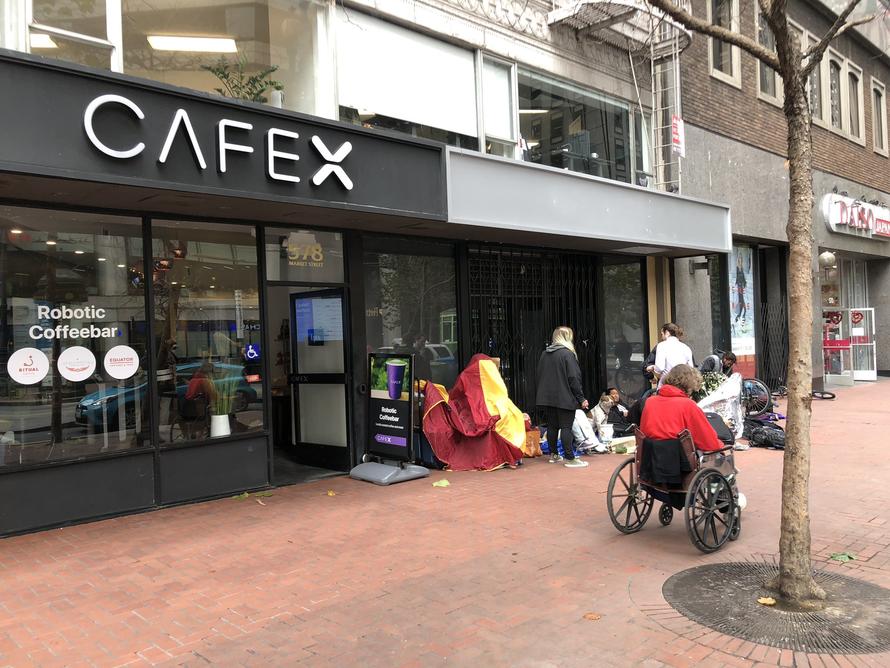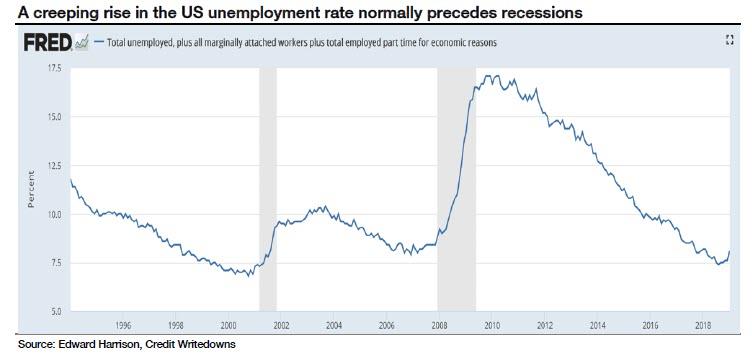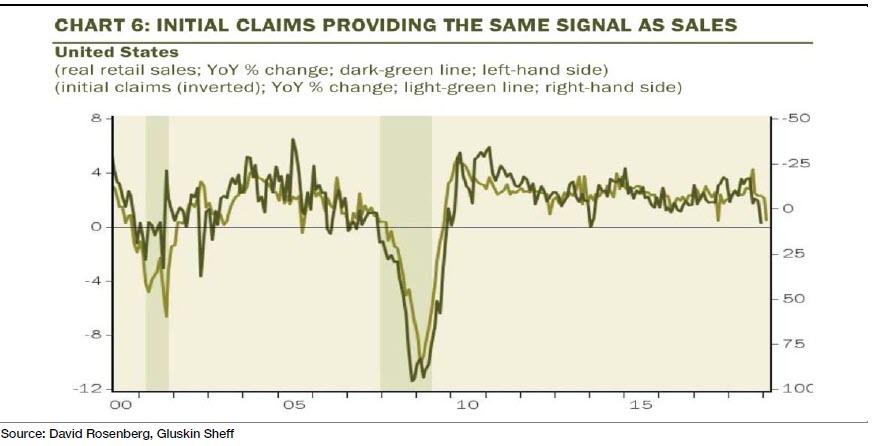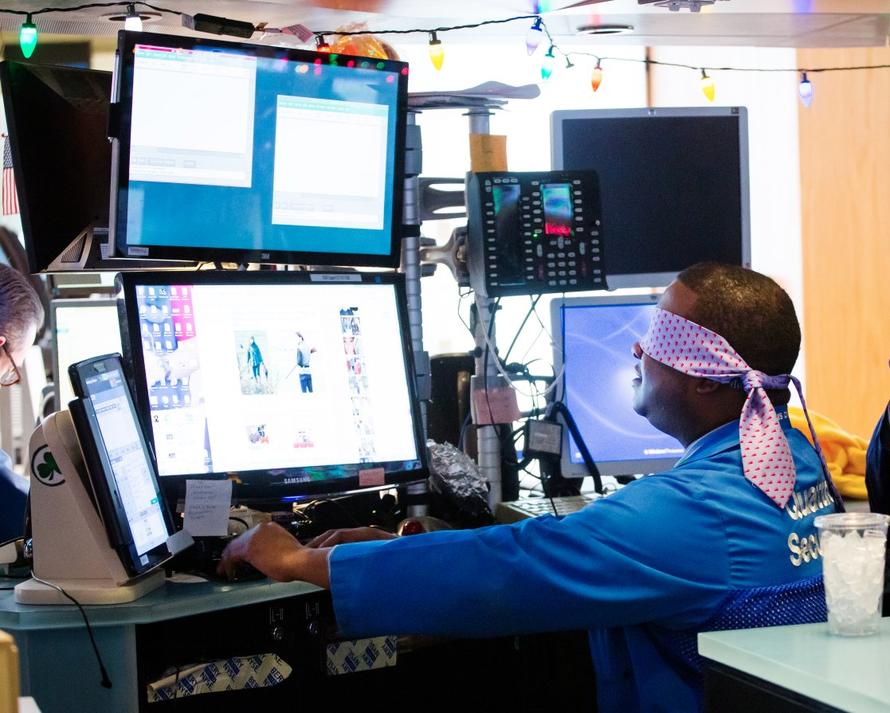When it comes to foreigners visiting the US, while the general reaction is overall favorable, it appears that one city tends to draw a reaction of sheer shock if not disgust: San Francisco.
Recall two weeks ago, when discussing his latest “luxury ski trip”, the UK’s Bill Blain said that he hopes his American hosts will forgive him for raising this, “but the squalor we saw in The City was frightful. San Francisco has always been one of favourite US cities, but the degree of homelessness, mental illness and drug abuse we saw on this trip was truly shocking. Walking round SF on a Sunday Morning and we saw sights we couldn’t believe. This must be one of the richest cities in the world – home to 4 of the 10 richest people on the planet according to Wiki. I asked friends about it, and they shrugged it off.. “The City has always attracted the homeless because of the mild weather,”.. “It’s a drug thing”.. “its too difficult”… “you get used to it..” Well, I didn’t.”

Now, it is the turn of another prominent financial strategist to lament the increasingly sordid reality of everyday life in the liberal capital of the West.
In his latest note to client, “Stoned on free money”, SocGen’s Albert Edwards picks up where Blain left off, and writes the he too “was really quite shocked by my visit last year to San Francisco by the sheer quantities of men (yes it is virtually 100% men) who were clearly off their heads on drugs (and drink) and putting both themselves and other road users at risk.” Edwards continues his lurid recollection of his trip to this liberal utopia overrun by homeless people and junkies:
I have been a regular visitor to San Francisco for 30 years and maybe it is because I only visit once every couple of years that I notice the change.
Most surprising was the pungent smell of cannabis skunk that pervaded the streets almost everywhere – something that isn’t the case in somewhere like Amsterdam where legal consumption of marijuana is mainly confined to designated cafes. But the smell doesn’t seem to bother everyone. In a startling admission, the UKs most senior police officer and head of London’s Metropolitan Police, Cressida Dick, admitted she could not smell the pungent aroma of skunk – link. Like San Francisco, the area of London I live in, Bethnal Green, also has a heavy smell of skunk as drugs are sold and consumed openly on the streets, despite residents’ best efforts to shame the authorities into action.
Having bashed San Francisco and its generous drug culture, Edwards then turns to a totally different topic: surging pedestrian fatalities and the “epidemic” of marijuana use that is allegedly behind them: “I was shocked to see the latest data showing US pedestrian fatalities have soared some 25% since 2012! Very few stats surprise me, but this is one of them (see chart below, H/T to Nick Glydon at Redburn)…
“But why has this happened?” Edwards ponders, and then provides the following answer:
The annual Spotlight on Pedestrian Traffic Fatalities, explores potential reasons for the surge in fatalities, considering factors including the dramatic growth in smartphone use and state legalization of recreational marijuana. The report notes, “The seven states (Alaska, Colorado, Maine, Massachusetts, Nevada, Oregon, Washington) and DC that legalized recreational use of marijuana between since 2012 reported a collective 16.4% yoy rise in pedestrian fatalities, whereas all other states reported a collective 5.8% yoy decrease in pedestrian fatalities.” It appears the US is gripped by an epidemic of stoned pedestrians stepping into traffic. The same might be said for investors befuddled by QE, for the risk is they are about to step off the sidewalk in front of a rapidly deteriorating economic cycle.
The surprised Edwards then goes on to add that he also found the report “quite shocking” most especially “because of the very clear evidence that the surge in fatalities is primarily due to the legalisation of marijuana in some states.”
Because most pedestrian fatalities occur in urban areas, the study also examined changes in the number of pedestrian fatalities for the 10 most populous U.S. cities. In the largest city, New York, deaths were unchanged yoy. But in the USs second biggest city, Los Angeles, deaths rose 50%, while they fell 10% in the third largest city, Chicago. There is a clear causal relationship between surging fatalities of pedestrians and legalising marijuana.
Of course, there is a word for the pedestrians’ state of mind (right before they are mowed down by an income vehicle): comfortably numb. And we were hardly surprised to learn that the skeptical SocGen strategist is hardly a fan of “altered” mind states. As he admits “as a former part-time magistrate and member of a mental health appeals panel (for compulsory detained patients), I have strong views on the legalisation of drugs but those views are not for these pages. Clients though will know I will opine on most topics in face-to-face meetings. I do though find this article an interesting contribution from the perspective of a former UK undercover drugs cop, who became disillusioned with the war on drugs.“
So what is the common theme behind Edwards’ highlighting of exploding drug use in San Francisco and high pedestrians getting killed in increasing numbers? According to the SocGen strategist, the point is that “investors, like marijuana users, are high once again on the promise of renewed monetary injections. But with their senses now numb to the reality around them, investors could miss the fact that the economic cycle is deteriorating sufficiently rapidly that it is about to crush their equity portfolios.”
Edwards then concludes by pointing out the current “goldilocks” state of the economy where on one hand the Fed recently capitulated on its tightening bias, while at the same time the US economy appears to be slowing – with inflation once again rolling over – but not slowing enough to prompt fears of an imminent recession. Or maybe not: remember that as we noted a few weeks ago, “the last three recessions all took place with 3 months of the first rate cut after a hiking cycle.” The SocGen strategist echoes this observation and adds that “the end of the Fed tightening cycle is more often than not, a prelude to recession.”
Meanwhile, always one to highlight the risks of a growing economic slowdown, Edwards is hardly on the “no recession in 2019” bandwagon, noting that “where investors could easily be caught out is in dismissing recent weak US economic data as due to one-off factors such as the very cold weather or the government shutdown.” To substantiate his point that a recession may be inevitable, he adds that “what seems to better predict recessions is when the separate Household Survey measure of employment begins to stall. In contrast to the strong 304,000 rise in the Establishment Survey of payroll employment, the Household Survey showed both a weak employment in January and an uptick in the unemployment rate. It is this latter event in particular, that traditionally precedes recessions (see chart below).”
Edwards also is quick to note that it is not payrolls that are part of the official US Leading Indicator, but Initial Unemployment
Claims:
“these too have been creeping up in recent weeks and are a clear recession warning. Dismissing these trends as due to the US government shutdown reminds me of the one-off factors that were supposed to account for the slowdown in the German economic data over the autumn, only for the economy to subsequently splutter to a total halt in Q4. The excellent David Rosenberg of Gluskin Sheff notes that in addition to rising initial unemployment claims, Decembers shocking 1.2% mom decline in retail sales is another recessionary straw in the wind (see chart below).
David believes that weak retail sales are not an aberration as they tie in with the recent drop in retail hours worked from the employment report. He calculates that large declines in retail sales of this magnitude are associated with recessions 80% of the time.
Tying it all together – San Francisco hobos, stoned people getting peeled off the sidewalks, and the US economy – Albert has some advice for his readers: “Free money may have numbed our senses, but at this very late stage of the economic cycle, think very hard before stepping off the sidewalk.”
He may be right eventually, but for now the market is once again happy to reward “traders” such as the one pictured below.
via ZeroHedge News https://ift.tt/2VkE8R9 Tyler Durden



